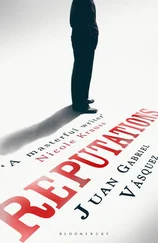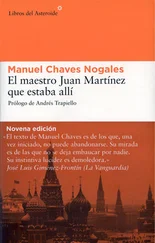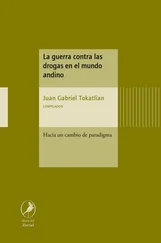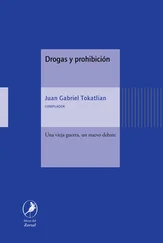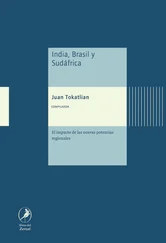“It might not be anything serious, right? It might be something else.”
I say yes, the doctors don’t know yet.
“I hope you’re not lying to me.”
“I explained everything in the letter, Viviane,” I say, letting my head drop. “Can we not overdramatize this, please?”
“Don’t be like that. Look at me.”
I obey.
“That’s better,” says Viviane. “You’re ill, I have a right to worry.”
This encounter must be much more difficult for her than it is for me. She has no hidden motives; I, however, am thinking all the time about this visit I’ve decided to pay, and for which Viviane is instrumental. Perhaps she’s now grown used to my absence, after who knows what efforts, and then I show up and write to her asking that we see each other again. I want to question her: Have you gotten used to it? Viviane, have you stopped loving me? I don’t, perhaps because it would be an awful way of playing dirty. I want to play fair with Viviane. I owe her a lot, and I know it. I thank her for coming, for putting up with this. But at the very moment I speak, the car fills with noise, because the train has gone into a tunnel.
“What did you say?” she asks me.
“Nothing, nothing,” I say. “I like it better when the train is aboveground.”
Viviane doesn’t reply.
“Here we are.” I nudge her gently with my fingertips. “We have to get off here.”
Of course I am ashamed of my cowardice; I don’t know if the harm I’m doing to Viviane is justified. But seeing my father is, today at least, a necessity. When we come up outside, my shoes are heavy as if I were walking on sand.
—
FIVE WEEKS after leaving Viviane, while reading an uninteresting essay by Georges Perec one night, I felt a hardness under my jaw. Bending my chin down, as one often does when reading in bed, I felt like I had a glass marble stuck to my skin. I spent the whole night bending my neck, lowering my chin, moving my head; discovering all the positions in which the marble made its presence known. Up till then I had never been ill: illnesses were things that happened to other people, someone else’s anecdotes or passing difficulties. A week later, after blood tests had been done, when each doctor whom another doctor referred me to evaluated the same symptoms and asked the same questions about pain, about my family medical history and possible fatigue, I began to experience a new sensation. As I crossed Paris by metro for another appointment or to pick up the results of the latest test, I was afraid, because each time a doctor touched my throat, I felt certain — it was an exaggerated but not entirely false certainty — that the marble had doubled in size. I was afraid because all the doctors asked me to undress, although for me it was a simple inflammation in a place that had nothing to do with my armpits, my elbows, the backs of my knees, or the flesh of my abdomen, and, nevertheless, the doctors pressed all over, with their fingers of greenish latex, looking for other inflammations. The first time this happened, a young doctor on Avenue de la Motte-Picquet told the woman who had recommended him to me what she then told me over the phone later that day. I don’t know if he confided in her with the express intention that she would repeat it to me, almost word for word, as she in fact did. “Xavier says that you shouldn’t worry too much. If it really is cancer, we’re going to find out relatively quickly.”
That was not the case: we did not know relatively quickly. The diagnoses continued to be imprecise, and I continued to walk around Paris — now almost all the doctors I saw were in the 15th arrondissement, which, at least, meant I didn’t have to spend the whole day underground in the metro — with the feeling that something was getting away from me: time, the city I was beginning to hate, the simple truth, daily calm. Unidentifiable lytic detritus, the detection of macrophages, all this was like a keyhole, barely suggesting the illness with a hermeticism resembling poetry. People’s curious glances soon began to try my patience. But then I’d get home, look in the mirror, and forgive them, for it was impossible to pretend that the deformity on my face might not attract attention. It had transformed into half a sphere, as prominent as if someone had sewn a pocket onto my left jawbone, and it was tender and the skin covering it was a lighter color, milky like the water in a puddle. I was tormented by the lack of symmetry, the bulge I’d occasionally catch sight of on my shadow, the hindrance if I looked back over my left shoulder; but more than anything else, my lost invisibility, the notoriety my face acquired in any public place. I was no longer nobody, now I was a person among the abstract assembly of people in the metro. I didn’t know, until that moment, the importance I gave to the possibility of being incognito, and now, suddenly, everybody I crossed paths with on the street was like a relative who looked at me from afar until realizing, by the time they were at my side, that no, we’d never seen each other before. I learned to hate. At a pedestrian crossing at the Jardin du Luxembourg, a woman waiting beside me to cross Rue de Vaugirard approached me to ask, point-blank, what that was I had on my face; the youngest daughter of Madame Schumer, my landlady, refused to greet me with a kiss, and her expression revealed disgust and fear at the same time. She was an eight-year-old girl, but I felt contempt for her (and for all the rest of the children I saw outside, clean and healthy, unaware of their bodies) and avoided her from then on.
The same day I had a chest X-ray and an MRI, I received a call I didn’t get to in time because I was in the shower trying to wash the blue gel the doctor had smeared on the scanner wand off my neck and chest: a cold lubricant that left me feeling, on the way home, that my cotton clothes were constantly sticking to my skin, not like sweat, but like dry nectar. The absurd possibility that it had been my father calling lodged in my head. It was absurd, because he didn’t know I was no longer married, didn’t have my new phone number, and knew nothing of my indecipherable illness; it was absurd, above all, because my father never had any reason to want to talk to me. Now, imagining it had been him who called seemed unusual for me, almost fantastical, except for the fact of probable death. In the cinema, walking along the Canal Saint-Martin, over breakfast, the probability I was dying of lymphatic cancer had begun to dog me. Maybe I still had a few doctors to consult; I still hadn’t received test results proving it irrefutably, but I had already stopped feeling I had more than enough time.
A couple of days earlier, then, I made up my mind. I’d just undergone the last tests: several punctures that extracted a sepia-colored liquid from the swollen lymph node, a liquid that would be left to ferment for three days on a saucer like the ones we used in school to separate salt from water, and which would, according to Dr. Fauchey, give us fundamental information about the nature of my illness. I didn’t actually see the instrument used: I felt a sharp itch but no real pain, because the skin covering the node lost sensitivity and became almost dead tissue. While I was waiting for the results, I went out for a walk through Montparnasse, perhaps trying to catch a little of Parisians’ feigned frenzy, but my impatience obliged me to look for a pay phone and call the doctor. His secretary answered; she said that Fauchey was out of town until the weekend. “Call him on Monday,” the woman had said, and I felt something like hatred toward her. “Does the doctor have a mobile?” I asked, and heard a no, first of all, and then a long silence on the other end of the line. “Give me that number,” I said. “I might have… I might be very ill and not know it. It’ll be your responsibility, mademoiselle.” The threat was infantile, but effective. The strange thing was my difficulty in pronouncing the name of my possible illness. For some time now the word itself, seen by chance in the display window of the Odéon medical bookshop or even in a magazine horoscope, would provoke slight dizziness and an empty feeling in my stomach.
Читать дальше

